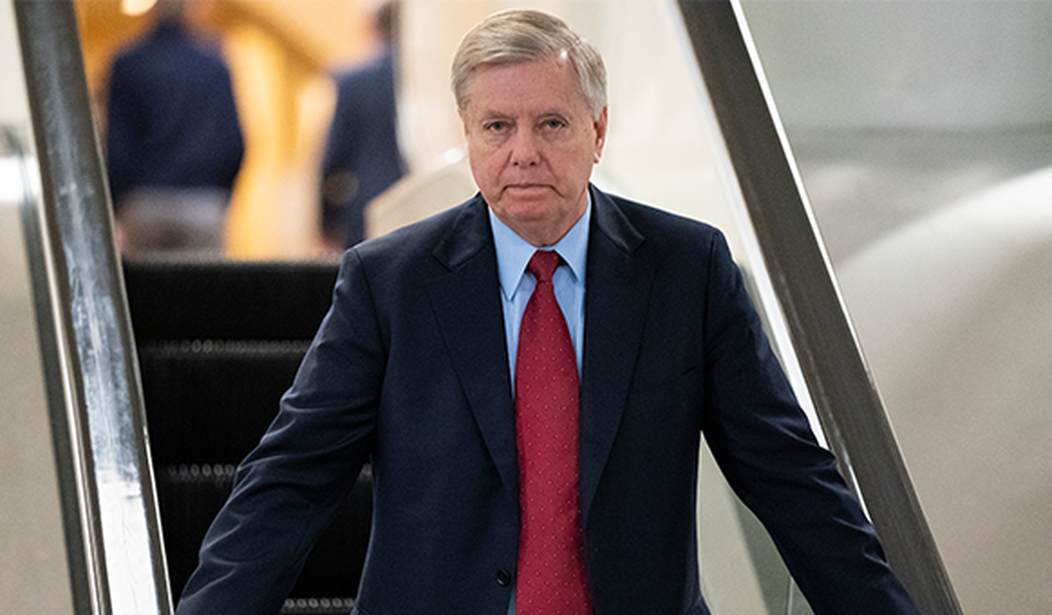Senator Lindsey Graham (R-SC) is going to have to testify in a grand jury investigation in Georgia. He asked a U.S. district judge to quash a subpoena for his testimony but she has denied that request. She did, however, limit the questioning that Graham will face.
Graham was ordered to testify in July after he and others alleged to be in Trump’s inner circle were subpoenaed, including Rudy Giuliani. Then a federal appeals court agreed to temporarily put on hold a lower court’s order requiring him to testify. Graham’s argument was that as a U.S. senator, he was entitled to question Georgia election officials about the results of the 2020 presidential election. He referenced the Constitution’s Speech or Debate Clause in his defense.
Judge Leigh Martin May issued a 23-page ruling on Thursday. She agreed with Graham that some of his fact-finding “constitutes protected legislative activity” in some discussions about “election procedures or allegations of voter fraud.” But she ruled that “all other topics” are fair game for prosecutors.
Judge May did not agree with Graham’s defense using the Speech or Debate Clause to avoid testifying.
“The Court is unpersuaded by the breadth of Senator Graham’s argument and does not find that the Speech or Debate Clause completely prevents all questioning related to the calls,” U.S. District Judge Leigh Martin May wrote, referring to a constitutional provision that protects lawmakers from being questioned about legislative activity.
Fulton County District Attorney Fani Willis wants to question Graham about two phone calls he placed to Georgia Secretary of State Raffensperger in which he allegedly questioned the examination of absentee ballots and the possibility of voter fraud.
Fulton County District Attorney Fani Willis indicated in court filings that she wants to ask Graham about two phone calls she says he made to Georgia Secretary of State Brad Raffensperger and his staff shortly after the 2020 general election. During those calls, Graham asked about “reexamining certain absentee ballots cast in Georgia in order to explore the possibility of a more favorable outcome for former President Donald Trump,” Willis wrote in a petition seeking to compel his testimony.
“Senator Graham may be questioned about any alleged efforts to ‘cajole’ or encourage Secretary Raffensperger or other Georgia election officials to throw out ballots or otherwise alter Georgia’s election practices and procedures,” May wrote, adding that the grand jury can question Graham about “coordination with the Trump Campaign and its post-election efforts in Georgia.”
So, Judge May acknowledged that portions of Graham’s calls to Georgia officials may have been legitimate legislative activity and are shielded against questioning. As a senator, he is entitled to do some legislative fact-finding. However, he can be questioned about any alleged “cajoling or encouraging” he may have done in his calls to Raffensperger or other officials “to throw out ballots or otherwise alter Georgia’s election practices and procedures.” The grand jury can ask about Graham’s “alleged communications and coordination with the Trump Campaign and its post-election efforts in Georgia, as well as into Senator Graham’s public statements related to Georgia’s 2020 elections.”
Judge May provided Graham with a semi-win. Graham’s office released a statement after the ruling.
In a statement Thursday, Graham’s office said, “We are pleased that the district court recognized that Senator Graham’s testimony is protected by the Speech or Debate Clause” and that the senator would “continue to defend the institutional interests of the Senate and the Constitution before the Eleventh Circuit.”
The ruling will be reviewed by the appeals court.








Join the conversation as a VIP Member